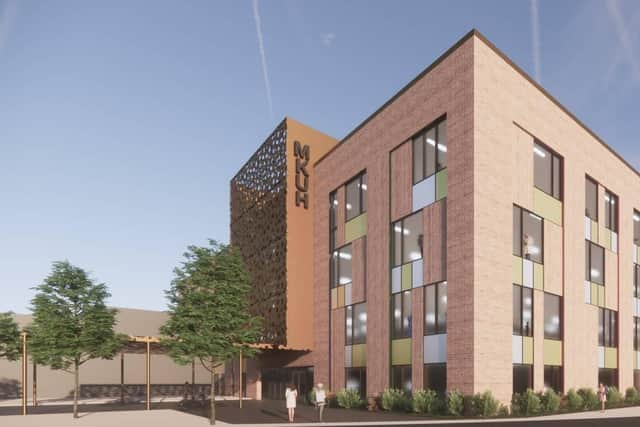First glimpse of how our newly-announced £200m hospital will look in Milton Keynes
and live on Freeview channel 276
The Citizen can bring you the first glimpse of how the new £200m Women’s and Children’s hospital will look.
The ‘world class’ facility has been given the green light today by the government, as we reported earlier.
Advertisement
Hide AdAdvertisement
Hide AdTo be built next to the main MKUH building, it will bring together maternity, paediatric and obstetrics services all under one roof.


It is due to open by 2030 as part of the government’s New Hospital Programme and confirmation of funding was announced today by the Secretary of State for Health and Social Care, Steve Barclay MP.
With the population of the city set to double by 2050, the Milton Keynes community and those in surrounding areas are set to benefit significantly from this announcement.
It will enable MKUH to progress with its ongoing expansion plans to deliver additional capacity and technology enhancements, allowing the Trust to meet the future acute care needs of the rapidly growing local population.
Advertisement
Hide AdAdvertisement
Hide AdJoe Harrison, chief executive of Milton Keynes University Hospital, said: ‘We are thrilled to hear that essential funding as part of the New Hospital Programme to develop a new women’s and children’s hospital, and surgical ward has been officially recognised by the Government in an announcement today.
"This enhancement to our estate is a fundamental element of our future growth strategy, allowing the Trust to increase capacity and improve the hospital care environment across the entire estate.
The announcement of funding will allow to Trust to proceed to the Outline Business Case (OBC) stage of the programme, which will involve further engagement with staff, patients and the local community.